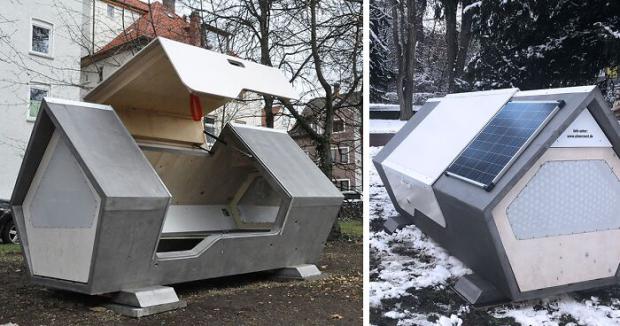
Breaking News
 Conservatives Are Being Targeted – Louder with Crowder CEO Warns / Redacted
Conservatives Are Being Targeted – Louder with Crowder CEO Warns / Redacted
 "Liz Reitzig: Raw Milk Revolution"
"Liz Reitzig: Raw Milk Revolution"
 Court Clears Trump to Defund Planned Parenthood
Court Clears Trump to Defund Planned Parenthood
 PepsiCo, Mars, ADM team up for regenerative agriculture project in Poland
PepsiCo, Mars, ADM team up for regenerative agriculture project in Poland
Top Tech News
 Tesla Megapack Keynote LIVE - TESLA is Making Transformers !!
Tesla Megapack Keynote LIVE - TESLA is Making Transformers !!
 Methylene chloride (CH2Cl?) and acetone (C?H?O) create a powerful paint remover...
Methylene chloride (CH2Cl?) and acetone (C?H?O) create a powerful paint remover...
 Engineer Builds His Own X-Ray After Hospital Charges Him $69K
Engineer Builds His Own X-Ray After Hospital Charges Him $69K
 Researchers create 2D nanomaterials with up to nine metals for extreme conditions
Researchers create 2D nanomaterials with up to nine metals for extreme conditions
 The Evolution of Electric Motors: From Bulky to Lightweight, Efficient Powerhouses
The Evolution of Electric Motors: From Bulky to Lightweight, Efficient Powerhouses
 3D-Printing 'Glue Gun' Can Repair Bone Fractures During Surgery Filling-in the Gaps Around..
3D-Printing 'Glue Gun' Can Repair Bone Fractures During Surgery Filling-in the Gaps Around..
 Kevlar-like EV battery material dissolves after use to recycle itself
Kevlar-like EV battery material dissolves after use to recycle itself
 Laser connects plane and satellite in breakthrough air-to-space link
Laser connects plane and satellite in breakthrough air-to-space link
 Lucid Motors' World-Leading Electric Powertrain Breakdown with Emad Dlala and Eric Bach
Lucid Motors' World-Leading Electric Powertrain Breakdown with Emad Dlala and Eric Bach
 Murder, UFOs & Antigravity Tech -- What's Really Happening at Huntsville, Alabama's Space Po
Murder, UFOs & Antigravity Tech -- What's Really Happening at Huntsville, Alabama's Space Po
Homeless In Germany Offered Futuristic 'Coffin-Like' Pods To Sleep In

Two of these "Ulm nests" were positioned in Ulm, 75 miles west of Munich, earlier this month. The pods give homeless people an emergency place to sleep as colder weather has blanketed much of Germany.
These small shelters are positioned in parks and other strategic areas. Each pod can accommodate two occupants and is made of wood, steel, and plastics. Thermal insulation surrounds the pod's interior while fresh air circulates, allowing occupants to survive cold winter nights.
From the initiative's official Facebook page, they said Ulm nests "are equipped with solar panels, which allows (at least) energy neutral use during the day."
The initiative said each Ulm nest is connected to their internet of things network that alerts the Caritas Ulm-Alb-Donau charity association or Ulmer Nest about overnight stays. The next day, charity members will direct occupants to the city's homeless service, ensuring they will have the care to get them off the streets.
We suspect the popularity of Ulm nest could increase over the coming quarters as the global economy stumbles amid severe virus-related impacts. As BofA's Michael Hartnett points out, the bursting of the bubble remains the most significant bull risk, the "decade-long backdrop of maximum liquidity and technological disruption has caused maximum inequality & massive social and electoral polarization…value of US financial assets (Wall Street) now 6X size of GDP."



